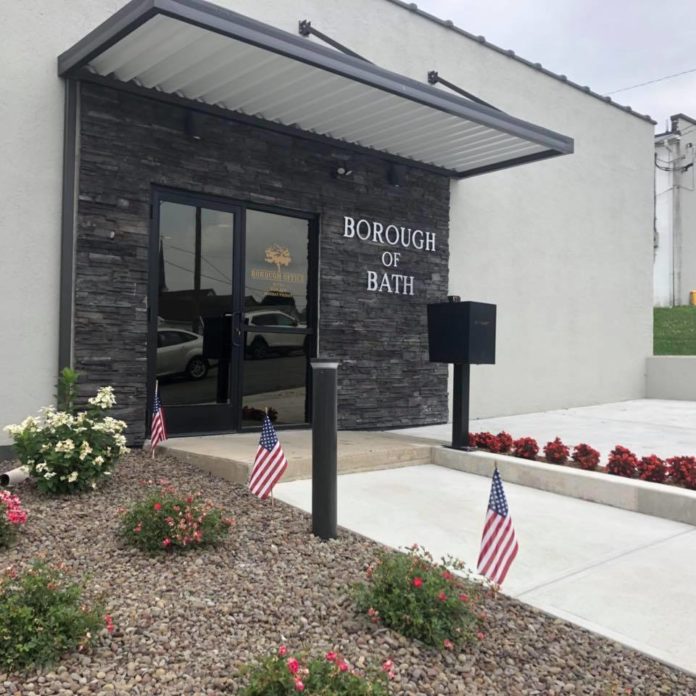
Bath Borough is the latest Lehigh Valley municipality to voice opposition to Governor Tom Wolf’s proposed state police fee. Under this proposed fee, municipalities would pay for state police coverage based on incidents, coverage area, income, and population. Some municipalities would pay tens of thousands of dollars per year, while others could end up paying over half-a-million dollars.
Bath Borough would pay about $2.00 per resident, or $5,351 per year.
“We found the metric of using police incidents in determining cost distribution was a divisive business tool,” Borough Manayer Brad Flynn wrote in a letter to Governor Wolf. “It led to one of the reasons why we withdrew from our regional police force.”
Bath had previously been using the services of the Colonial Regional Police Department. However, in 2018, the borough’s council voted to utilize state police services. Doing so offered considerable cost savings for the borough.
According to Governor Wolf’s office, many municipalities are following Bath’s lead. The ever-increasing reliance on state police, as opposed to regional forces, has increased costs of the program.
But this fee would create an us vs. them or an our community vs. your community conflict, argues Bath.
In their letter of opposition, Bath Borough proposed two alternatives to the fee: a more traditionally calculated state police fee and a county-wide police fee.
“If in the end, all municipalities receiving state police coverage are being moved toward some type of police payment scheme, why not have local choice?” asked Flynn.
Currently, Allegheny County in western Pennsylvania is the only county authorized to use county-based police services. While not a popular option in Pennsylvania, the method is common across other states in the U.S. Studies have found it is one of the least expensive police service delivery methods available.
“It is a significant departure to the police service model accepted here in Pennsylvania, consisting of expensive police service redundancy, creation of regional police from defunct municipal police agencies ending with mixed successes…which in turn, often leads to burdening state police for free police coverage when all else fails,” explains Flynn in the letter.
Bath, he says, has used every single one of these methods.
Implementing a county fee would mean changing Pennsylvania’s County Code, but the benefits could be worth it.
“It is possible more meaningful collaboration among municipalities…will lead to less reliance on state police,” says Flynn.
No vote as to the governor’s proposal has been made. However, Bath offered up its services in assisting state agencies with this decision.
Bath Borough also sent its letter of opposition to the PA Association of Boroughs and local state representatives.
Bath joins East Allen Township in publicly opposing this fee. Supervisors in East Allen have asked their solicitor to send a letter of opposition to the governor as well.









